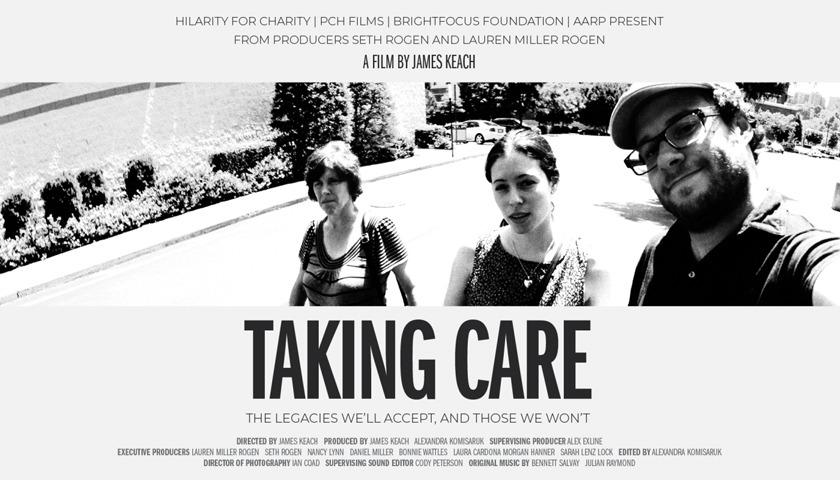Despite almost one million people in the UK living with dementia today, and it being the UK’s leading cause of death, there is still a widespread lack of awareness around the impact it has on people affected by the condition.
A YouGov survey, commissioned by Alzheimer’s Research UK, asked 2,162 people to name how dementia affects a person’s everyday life. It revealed that:
- Less than half (49%) could name memory loss as an effect of dementia.
- Nearly a quarter (22%) said they had no idea how the condition impacts people.
- Only 12% said they knew dementia causes people to lose their independence.
- One in five people (21%) were aware it causes trouble with managing daily tasks.
- 11% realised dementia can affect personal relationships.
- 5% appreciated it stopped people from being able to communicate.
- 4% were aware it causes loss of body and motor control.
- 2% knew it causes difficulty managing finances.
People with dementia can experience many distressing symptoms, including memory loss, changes to their personality, losing the ability to communicate, hallucinations, becoming incontinent, and needing support to do everyday things like eating, bathing and dressing.
While progress is being made in dementia research – particularly in recent months with new Alzheimer’s drugs, lecanemab and donanemab showing success in trials – the charity says that transforming the public’s understanding is vital to speed up progress.
The figures were commissioned to support Alzheimer’s Research UK’s new campaign film, Change The Ending – which launches today on World Alzheimer’s Day. The film, voiced by Oscar-winning actor Olivia Colman, puts a spotlight on the urgent need to find a cure for dementia.
“As soon as I heard about the concept behind Alzheimer’s Research UK’s campaign, I wanted to be involved and support their search for a cure” said Colman, “Dementia devastates lives and wreaks havoc on far too many families across the UK and around the world”.
The animation shows how the effects of dementia rob people of their ‘happily ever after’ and aims to raise awareness of the devastating impact of this condition, in the hope of rallying support for the charity to find a cure.
Colman’s mother was a nurse for 45 years, and as a young girl, she frequently met people her mother cared for, including those who were living with dementia, an experience that stuck with her. “It was so upsetting to see how the condition had robbed people of their independence, and the impact it had on their loved ones,” she recalls. The condition also had a direct impact on her family – Colman’s great-grandmother died with the condition and other loved ones close to her family also succumbed to it.
“The work Alzheimer’s Research UK does is so important, and I was proud to lend my voice to this campaign – it lays bare the realities of dementia in such a powerful and thought-provoking way,” she said. “I was holding back tears narrating the film as dementia destroys people’s ‘happily ever afters’, and we must do everything we can to end the pain and distress it causes.
“I’d urge everyone to join me and get behind Alzheimer’s Research UK to help drive them towards a cure.”
The charity’s emotive campaign film – part animation, part live-action – has been developed with creative agency, Above & Beyond. It follows the story of a prince and princess, whose fairytale life together is ripped apart after he develops dementia. The prince experiences many effects of dementia, including forgetfulness, no longer being able to do everyday tasks, becoming fearful and paranoid, losing the ability to walk and needing care.
Also supporting the campaign are Frank and Alison Littleford. Frank was diagnosed with Alzheimer’s – the leading cause of dementia – in 2020. The charity released a companion film along with Change The Ending, that shows the impact dementia has on their lives, what the couple have done to remain connected, as well as their hope in dementia research, which Frank is involved in.
“As my Alzheimer’s has progressed, I’m slowly losing myself”, Frank said. “The things I need to live a life, like the ability to speak, to converse, to appreciate others, are gradually disappearing. What is most upsetting is I can see how it affects my wife, Alison, more than anyone else and I find it so difficult to not be able to have the same relationship with her as I did before.
“It’s only now that I can understand how other people with dementia must feel and I want to do all I can to stop this condition affecting others, like it has affected us,” he said. “That’s why I’m proud to support Alzheimer’s Research UK’s Change The Ending campaign. This charity is at the heart of the efforts to find a cure, and the breakthroughs their researchers make are going to be vital in ensuring people don’t have to go through what me, Alison and our family are going through.”
Alzheimer’s Research UK’s Chief Executive, Hilary Evans, said the film features a story the charity urgently needs to tell. “This is the distressing reality for many people living with dementia today. Tragically, it will be the reality for many more if we don’t act now,” she said. “As our survey shows, too many people are unaware of how dementia destroys lives, and this is blocking our path to a cure. We know the film will be hard to watch, but by putting a spotlight on the devastation this condition causes, we hope to ignite support for the vital research that will change the ending for everyone affected by dementia.
“While we’re making great strides in dementia research, and new treatments are on the horizon, there is still much more work needed to save people from dementia,” she added.
“We’re so grateful to Olivia Colman, and Frank and Alison, for standing with us for this important campaign and joining us in our search for a cure.”


